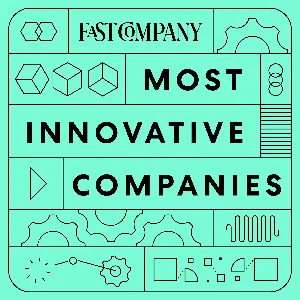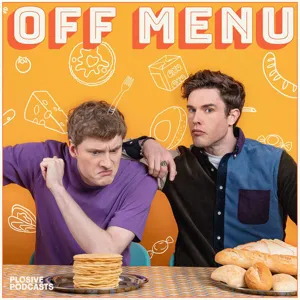Podcast Summary
The Power of Personal Experiences and Specific Needs in Brand Loyalty: People's brand loyalty is driven by personal experiences and specific needs, not just a company's ethos or style. Brands that meet these needs or evoke fond memories continue to hold a special place in people's lives.
People's brand loyalty is often not based on the company's ethos or style, but rather on personal experiences and the specific needs they fulfill. For instance, Yasmin is fiercely loyal to REI for their pants that perfectly fit her body type, while Josh is devoted to Heinz ketchup for its consistent taste. Brands like Birddogs, Trader Joe's, and Chanel continue to hold a special place in people's lives due to their ability to meet specific needs or evoke fond memories. This episode of Most Innovative Companies, brought to you by Verizon, explores the power of these brands and how they shape consumer behavior. Tune in to hear Fast Company senior staff editor Jeff Beer discuss the Brands That Matter issue. Remember, you can engage with us on Instagram (@yazyg and @joshuacris) and leave a review on Apple Podcasts to let us know what you think.
Brands that resonate emotionally build strong connections: Brands that evoke nostalgia, offer unique twists, or provide both emotional connection and product fit effectively resonate with consumers, leading to strong brand connections.
Meaningful brand connections go beyond just recognition or utility. Brands that resonate with consumers on an emotional level, tap into nostalgia, or offer a unique twist on familiar products can build strong and lasting connections. The Fast Company Brands That Matter recognition program honors companies that effectively execute their brand purpose and make an impact through cultural relevance and social causes. This year, they recognized 165 honorees, ranging from beauty and education brands to those that tap into sports and video game fandom. Brands like Chanel lipstick and Magic Spoon, which evoke nostalgia or offer a new twist on familiar products, have successfully connected with consumers on an emotional level. Brands that fit well and provide a utilitarian value, like Josh's pants, also build loyalty. The perfect storm brands manage to combine both emotional connection and product fit, making them particularly effective in resonating with consumers.
Brands that combine product quality and cultural relevance succeed: Successful brands like Blumhouse, Coors Light, and PlayStation succeed by offering high-quality products, staying culturally relevant, and maintaining a strong brand identity.
Successful brands, whether they're in film production like Blumhouse or consumer goods like Coors Light, understand the importance of both product quality and cultural relevance. Blumhouse has built a strong brand through consistently high-quality films and effective marketing, making viewers feel a sense of loyalty and excitement for each new release. Coors Light, on the other hand, has found success by leaning into the lightheartedness of its product category and creating unique, limited-edition merchandise, such as the Coors Light flashlight and golf club cover, that have resonated with consumers and generated buzz. PlayStation, with its historical strength and recent cultural relevance through productions like "The Last of Us," also stands out as a brand that effectively combines product development and cultural cachet. Overall, these brands have shown that a successful marketing strategy involves a mix of product innovation, cultural relevance, and a strong, recognizable brand identity.
Brands connecting with audiences through authenticity, follow-through, and social responsibility: Brands like Patrick Mahomes and the NFL foster meaningful connections by following through on promises, embracing change, and prioritizing ethical practices.
Authenticity and follow-through are essential for brands in creating meaningful connections with their audiences. Patrick Mahomes' charity effort, where he sold a Super Bowl LIV jersey for over $800,000, serves as an example of the importance of following through on promises and commitments. The NFL is another example of a brand expanding its reach and audience by embracing change and inclusivity, with initiatives like NFL Africa camps and a focus on women in sports. Additionally, the NFL and other sports leagues are exploring new ways to engage fans through innovative technologies and formats, such as the Toy Story simulcast of a Jaguars and Falcons game in London. Lastly, organizations like Fairtrade USA are making a difference by prioritizing ethical labor practices and responsible production. Overall, these examples highlight the importance of authenticity, innovation, and social responsibility in building strong connections with audiences.
Branding through authenticity and communication: Understand the unique identity and messaging of your brand to build trust and demand, whether in traditional businesses or NFTs. Authenticity and connection to audience are crucial for long-term success.
Authentic self-awareness and consistent communication are key elements for building a successful brand, whether it's a global enterprise or a small local outfit. Patagonia and Rustico Surf Club were used as examples of brands that have established trust and demand through their unique identities and messaging. In the context of NFTs, Bobby 100 shared his perspective on the ongoing debate around their value. Despite critics claiming that most NFTs have no value, Bobby emphasized the importance of understanding the nuances and potential of this new technology, rather than dismissing it entirely. He also shared his personal journey of starting a clothing brand, The 100, which has been successful for 20 years due to its authenticity and connection to its audience.
The Evolution of Streetwear: From Niche to Mainstream: From its multicultural roots in the late 70s to its current state of flux, streetwear's identity reflects broader cultural shifts towards inclusivity and individuality.
The late 70s and early 80s marked the beginning of streetwear as we know it, with brands like Stussy and surf brands merging hip hop and graffiti influences. However, this genre was initially marketed towards specific demographics, leading a generation of young people, largely mixed and people of color, to challenge these silos. Brands like Susie, Fresh Drive, extra large, and GAT became popular as they embraced this multicultural approach. Fast forward to the early 2000s, and streetwear was seen as a rebellion against traditional norms, with young people seeking comfort and individuality through loose-fitting, baggy clothing. Streetwear's identity is currently in a state of flux, reflecting the broader cultural shift towards inclusivity and individuality. The debate around who can claim streetwear and what it represents continues, but its impact on fashion and self-expression remains significant.
The cyclical nature of streetwear culture: Streetwear culture evolves through cycles of popularity and reinvention, with brands like The 100 persisting for two decades by understanding the need for both new discoveries and established voices.
Streetwear culture, much like music and art, experiences cycles of popularity and reinvention. For every generation, there comes a time when the subculture is proclaimed dead, only for it to be revived and reimagined by newcomers and veterans alike. The 100, a streetwear brand started in 2003, is a testament to this cyclical nature. From the early days of the internet and DIY ethos, to the influence of celebrities and rappers, to the elitism and snobbery inherent in youth culture, the brand has weathered various stages and persisted for two decades. Navigating the business and design aspects of staying relevant in a constantly evolving scene required a keen understanding of the culture's history and its need for both new discoveries and established voices. The 100's longevity is a reminder that streetwear, like many creative movements, thrives on the tension between the old and the new.
Treating a streetwear brand as a sustainable business: Authenticity, honesty, adapting, staying relevant, and open communication are keys to a streetwear brand's longevity.
Treating a streetwear brand like a sustainable business, rather than relying on momentary successes, is crucial for survival and growth. Streetwear Eve's success story is rooted in authenticity, honesty, and building a strong community of friends and customers. The brand's longevity comes from their ability to adapt, stay relevant, and communicate openly with their audience. Looking ahead, Streetwear Eve is celebrating their 20th anniversary with various collaborations and projects, and the introduction of their new brand, Atom Bomb. To stay updated, follow them on social media for Fireside Fridays and other initiatives.
100 Thieves expands into entertainment and food industry: 100 Thieves, a youthful brand, sells in stores and plans expansion. It explores entertainment avenues and hosts a Food and Fashion Festival. Matty Matheson, a food personality, grows his empire with instructional cookbooks, videos, shows, and restaurants.
The 100 Thieves brand, known for its cartoon bomb character, targets a younger audience and is sold in various stores including Zumiez, with plans to expand nationally and internationally. The brand is also exploring entertainment avenues such as cartoons, gaming, and food festivals. The annual Food and Fashion Festival, Family Style, brings together Michelin Star Restaurants, award-winning chefs, and streetwear brands for a unique one-day event. Matty Matheson, a Canadian food media personality, is a legend in the industry with a growing empire including instructional cookbooks, cooking videos, a show on Vice, a restaurant, and a burger joint, among other ventures. Currently, Matty's new food company, Matheson Food Company, and his hot sauces are gaining attention.
A reality show featuring older contestants challenges societal norms about aging and love: The Golden Bachelor, a new reality TV show, breaks stereotypes by featuring a 70-year-old widower seeking love, showcasing individuals with rich lives and diverse experiences, and humanizing senior citizenship.
The Golden Bachelor, a new reality television show in the Bachelor franchise, offers a refreshing change by featuring older contestants, specifically a widowed 70-year-old man named Gary, who is looking for love in his retirement years. This concept challenges societal norms of aging and humanizes senior citizenship, making it an interesting and unique addition to the reality TV genre. The show also deviates from the typical format of contestants being media-trained influencers and content creators, instead showcasing individuals with rich lives and diverse experiences. By featuring older romantic beings, The Golden Bachelor challenges misconceptions and stereotypes about aging and love.
Exploring the intersection of technology and entertainment: Reality TV shows for older demographics and AI technology creating realistic celebrities showcase the innovative potential at the intersection of technology and entertainment.
Technology continues to evolve and can be used in unexpected ways, even in industries like dating and cosmetics. During the discussion, we explored the surprising new trend of reality TV shows featuring older demographics, with the possibility of a "Golden Bachelor in Paradise" in the future. We also touched on the use of AI technology to create realistic versions of celebrities, as demonstrated by Tom Hanks' recent experience with a misleading dental ad. These developments showcase the intersection of technology and entertainment, and the potential for innovation in various industries. Stay tuned for our upcoming interview with Smile Direct Club, and don't forget to subscribe, rate, and review for more insightful discussions.






